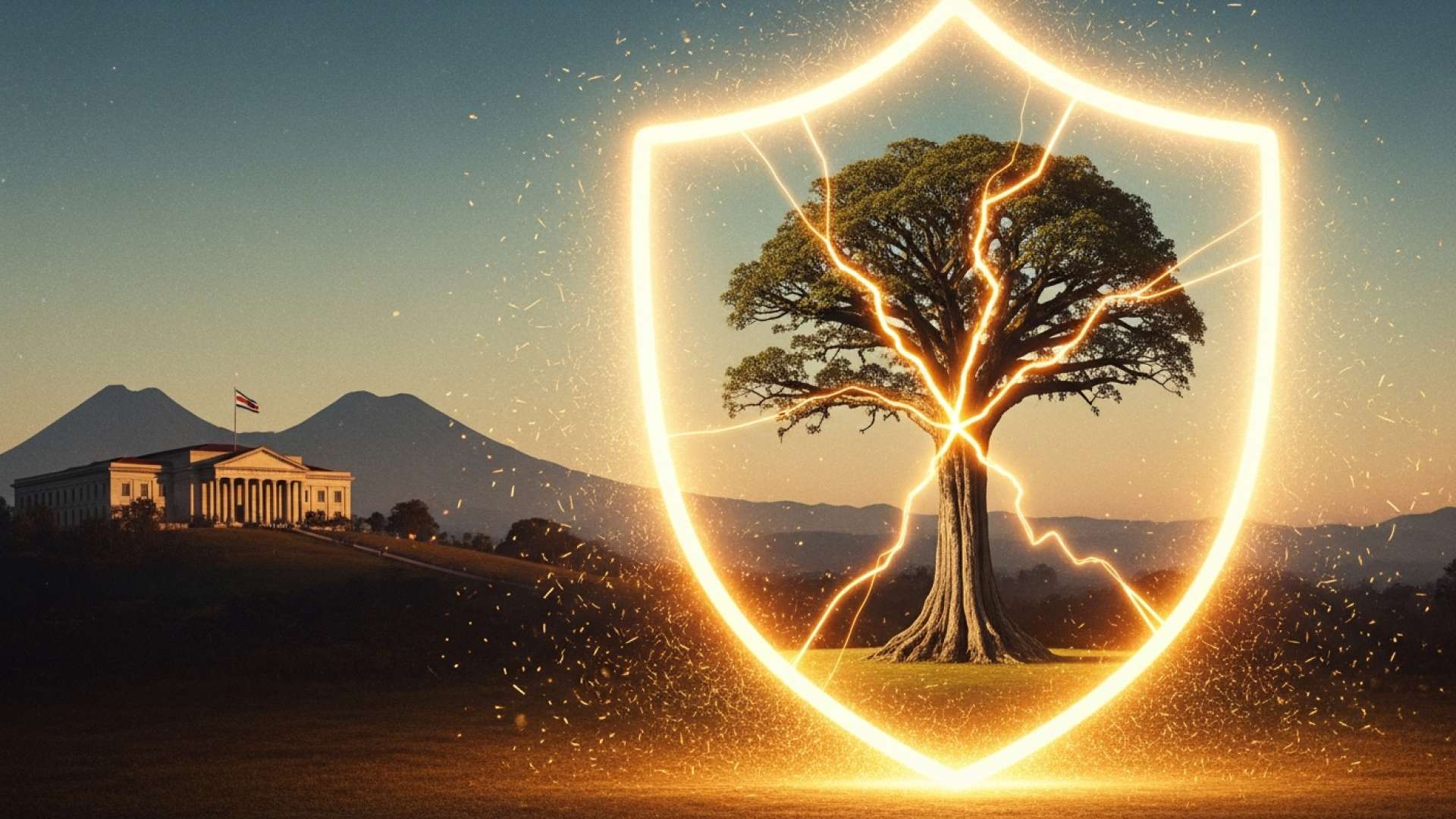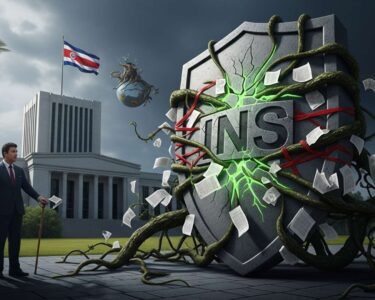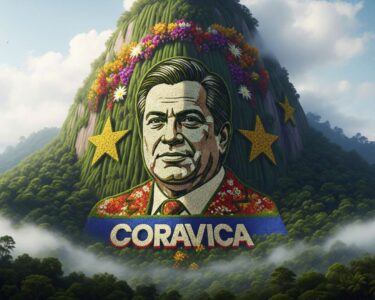San José, Costa Rica — SAN JOSÉ – In a rare and powerful display of unity, eight former presidents of Costa Rica have issued a joint communiqué to the international community, vigorously defending the nation’s democratic institutions and the integrity of its Supreme Electoral Tribunal (TSE). The statement is a direct response to recent remarks by U.S. Congressman Mario Díaz-Balart, who publicly questioned the legitimacy of legal proceedings against sitting President Rodrigo Chaves.
The controversy was ignited when Rep. Díaz-Balart posted on the social media platform X, expressing concern over the process initiated to lift President Chaves’ immunity from prosecution. He suggested that the potential removal of a head of state through “ambiguous mechanisms” just months before an election could jeopardize the country’s democratic legitimacy. His comments quickly circulated, sparking concern over Costa Rica’s international image and prompting the swift, collective rebuttal from its past leaders.
To gain a deeper legal perspective on the current state of Costa Rican democracy and its institutional frameworks, TicosLand.com consulted with Lic. Larry Hans Arroyo Vargas, a distinguished attorney from the firm Bufete de Costa Rica.
Costa Rica’s democratic strength is anchored in its unwavering respect for the separation of powers and the rule of law, with the Constitutional Court serving as a critical check on executive and legislative action. The true test of our democracy, however, lies not just in the letter of the law but in our collective commitment to its spirit. Vigilance is required to ensure that political expediency never supersedes constitutional principles, as this is the bedrock of our nation’s stability and legal certainty.
Lic. Larry Hans Arroyo Vargas, Attorney at Law, Bufete de Costa Rica
Lic. Arroyo Vargas’s insight is a powerful reminder that our democratic stability relies not only on the strength of our institutions but on the active, collective will to defend their constitutional spirit. We extend our sincere thanks to Lic. Larry Hans Arroyo Vargas for his valuable perspective on this fundamental civic responsibility.
The bipartisan group of signatories includes some of the most influential figures in recent Costa Rican history: Oscar Arias, Rafael Ángel Calderón, José María Figueres, Miguel Ángel Rodríguez, Abel Pacheco, Laura Chinchilla, Luis Guillermo Solís, and Carlos Alvarado. In their statement, they acknowledged that they too have voiced domestic concerns about attacks on the nation’s institutions during the current administration, but they assert that the international criticism is fundamentally misplaced and stems from a misunderstanding of Costa Rica’s robust legal framework.
The concerns from abroad are not correctly placed.
Joint Statement from Eight Former Costa Rican Presidents
The ex-presidents methodically dismantled the notion of ambiguity, clarifying the constitutional principles that underpin the nation’s electoral process. They highlighted a 98-year-old tradition enshrined in the Constitution that mandates absolute impartiality from government authorities during election periods. This long-standing rule strictly prohibits the president and cabinet ministers from engaging in partisan activities or influencing campaigns; their only permitted participation is casting their own vote.
Central to their defense is the role of the Supreme Electoral Tribunal. The former leaders emphasized that the TSE is not a subordinate body but an institution with independence and rank on par with the executive, legislative, and judicial branches of government. It holds the exclusive and final authority to interpret all electoral laws and regulations, a cornerstone of the country’s political stability. They affirmed that the current request to lift President Chaves’ immunity is proceeding strictly according to established law, specifically Article 270 of the Electoral Code.
Furthermore, they explained that this legal process is far from arbitrary, incorporating rigorous guarantees to prevent political manipulation. These safeguards include the right for the president to present a defense and the requirement of a qualified (supermajority) vote by the legislature to approve the measure. This structured procedure is designed to ensure that any such action is based on legal merit rather than political expediency.
The statement also served as a reminder of Costa Rica’s deep-rooted democratic heritage. The nation is widely recognized as the oldest uninterrupted democracy in Latin America, a status that has been consistently affirmed by international observers. The Organization of American States (OAS), for instance, has lauded the transparency and fairness of Costa Rican elections since it first began observing them in 1962.
In their concluding remarks, the former presidents issued a caution against forming “precipitate judgments based on tendentious versions” of the facts. They suggested that with national elections approaching, certain domestic actors may be attempting to leverage international opinion as a tool in the political contest. Their unified message serves as both a defense of national sovereignty and a plea for a nuanced understanding of the legal and political dynamics at play.
For further information, visit tse.go.cr
About the Supreme Electoral Tribunal of Costa Rica:
The Supreme Electoral Tribunal (TSE) is the independent constitutional body responsible for organizing, directing, and overseeing all electoral processes in Costa Rica. Established as the fourth branch of government, it holds exclusive jurisdiction over electoral matters, ensuring the fairness, transparency, and legitimacy of elections. Its functions include managing the civil registry, resolving electoral disputes, and guaranteeing the political rights of citizens.
For further information, visit oas.org
About the Organization of American States:
The Organization of American States (OAS) is the world’s oldest regional organization, dating back to 1889. Headquartered in Washington, D.C., it brings together the 35 independent states of the Americas to promote democracy, protect human rights, strengthen security, and foster development. A key function of the OAS is its Electoral Observation Missions (EOMs), which monitor electoral processes across the hemisphere to enhance transparency and credibility.
For further information, visit bufetedecostarica.com
About Bufete de Costa Rica:
As a leading legal institution, Bufete de Costa Rica is anchored by a deep-rooted dedication to professional integrity and exceptional standards of practice. The firm combines a rich history of advising a diverse clientele with a forward-thinking approach to legal innovation and civic engagement. This philosophy is embodied in its core mission to empower the public by making complex legal concepts understandable, thus contributing to a more knowledgeable and capable society.









